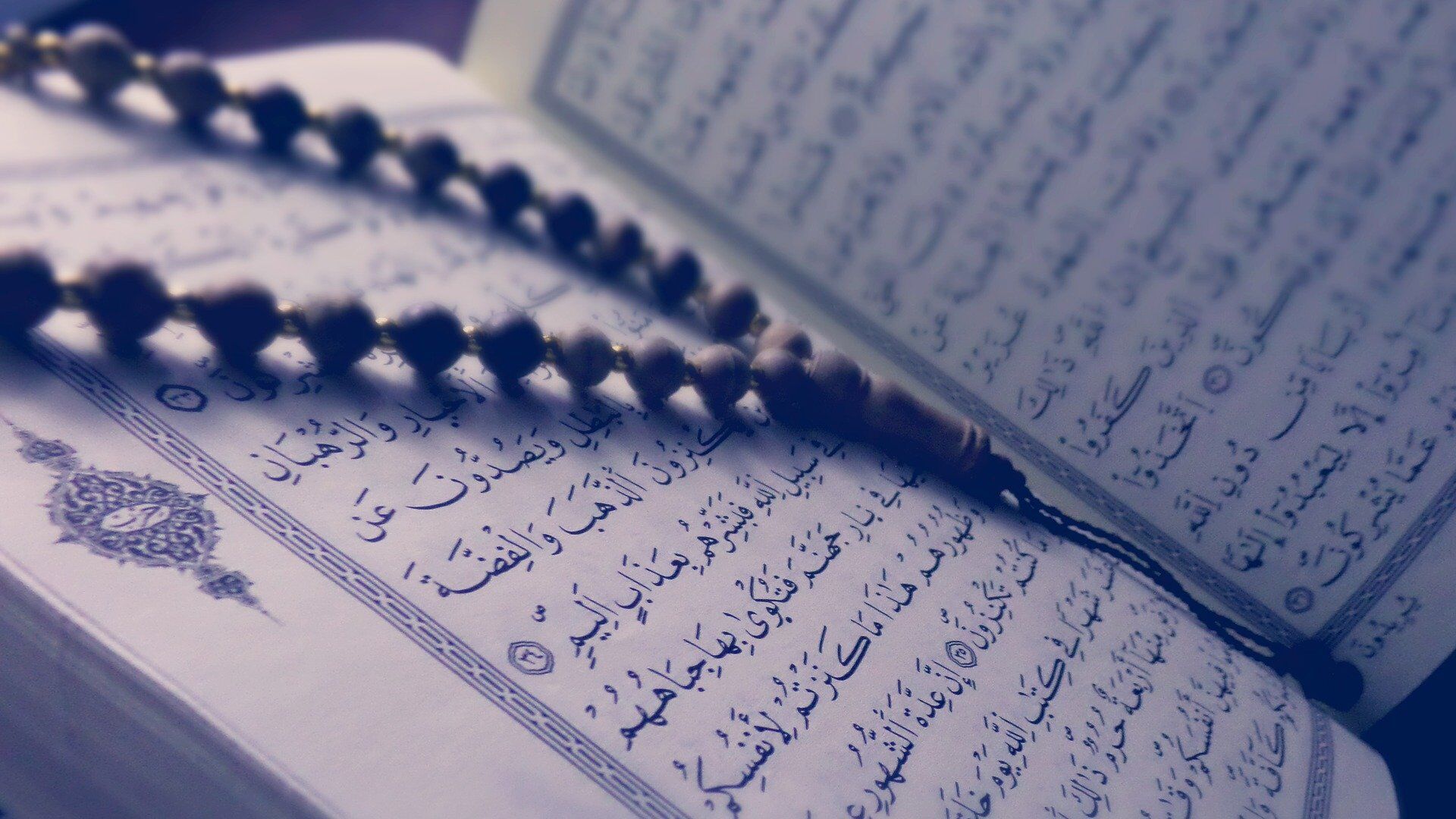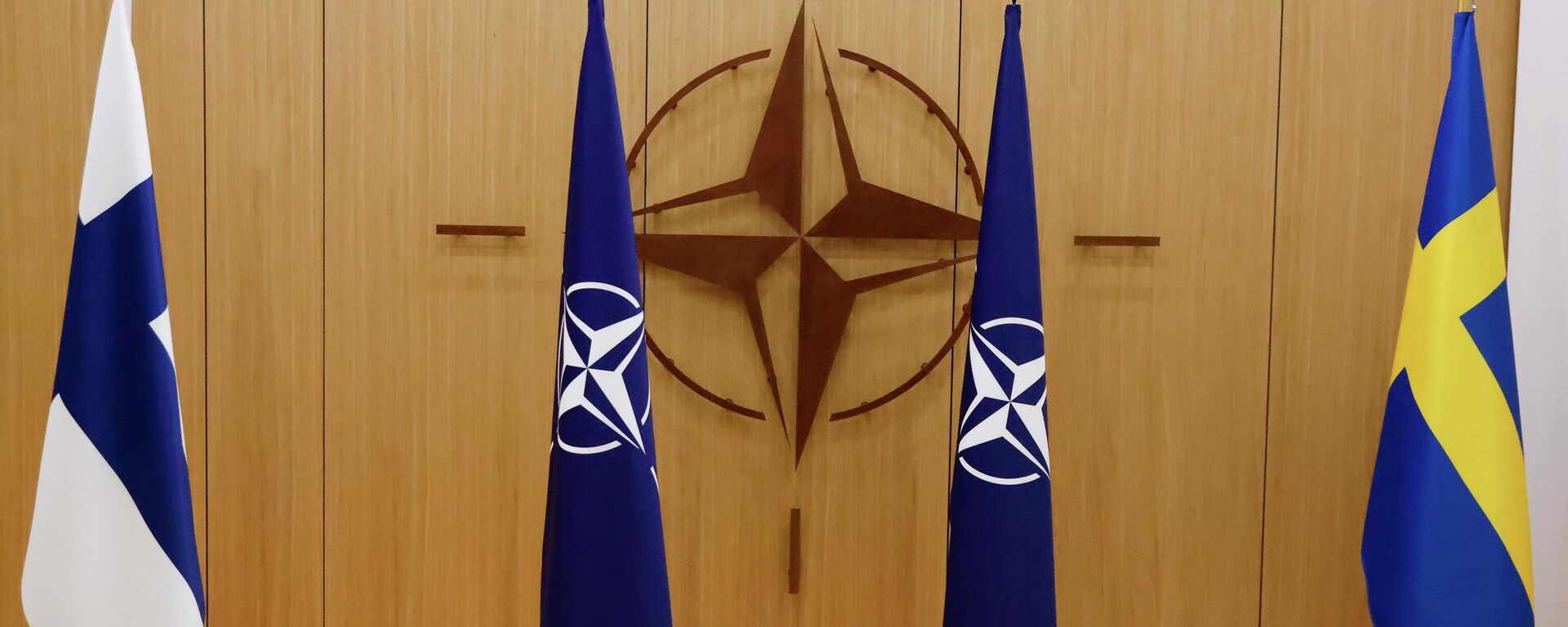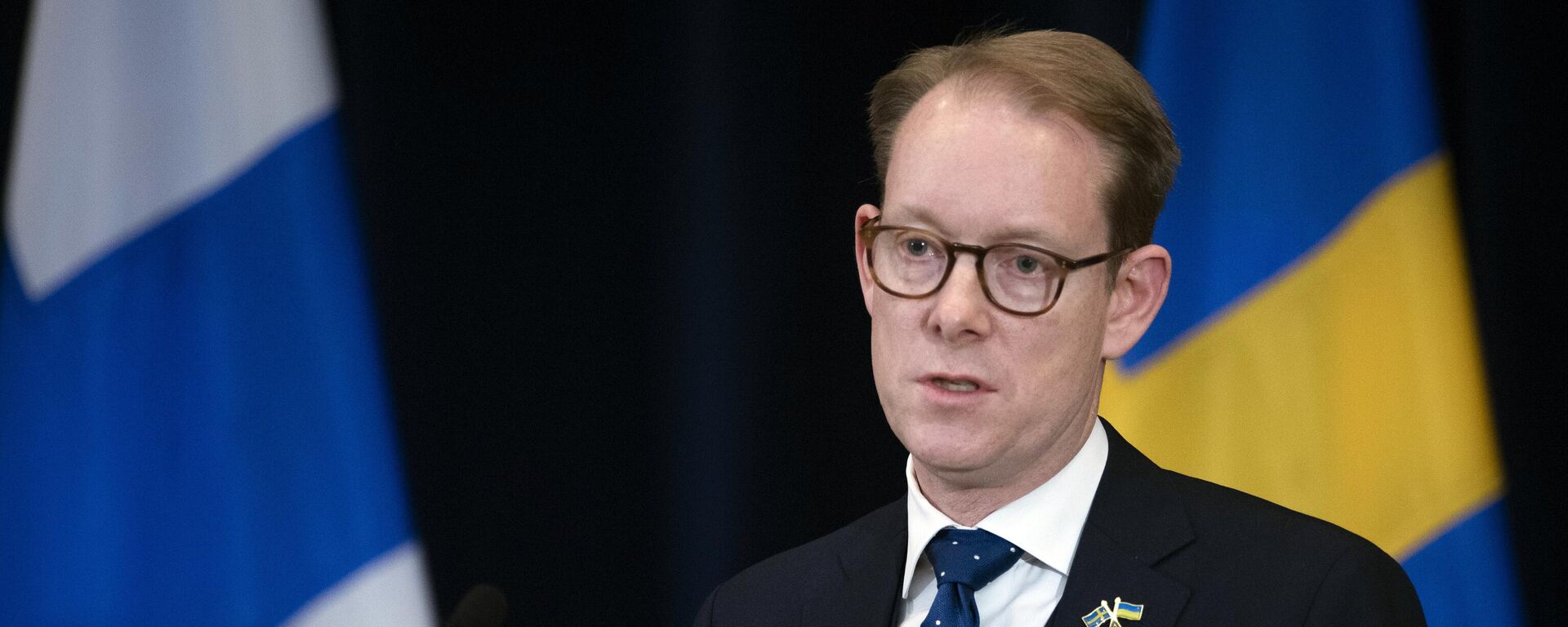https://sputnikglobe.com/20230707/sweden-mulls-ban-on-quran-burning-amid-nato-bid-impasse-1111712491.html
Sweden Mulls Ban on Quran-Burning Amid NATO Bid Impasse
Sweden Mulls Ban on Quran-Burning Amid NATO Bid Impasse
Sputnik International
Following the global outcry with repercussions for Sweden's international standing, Swedes are increasingly in favor of banning the public burning of religious texts.
2023-07-07T07:06+0000
2023-07-07T07:06+0000
2023-07-07T07:06+0000
world
europe
sweden
stockholm
turkiye
quran
bible
islam
torah
religion
https://cdn1.img.sputnikglobe.com/img/105418/77/1054187730_0:48:1920:1128_1920x0_80_0_0_669f472b1af54ac13f53a66eda221c3c.jpg
The Swedish government is examining whether it could make setting the Quran, or other holy books, on fire illegal, as recent incendiary actions have "generated threats to Sweden's internal security," Justice Minister Gunnar Strommer told local media."We have to ask ourselves whether the current order is good or whether there is reason to reconsider it," Strommer said, stressing that it had transformed Sweden into a "prioritized target" for attacks.Global OutcryLast week, Sweden allowed an Iraqi immigrant to burn the Quran outside a Stockholm mosque on Eid-al-Adha, sparking outrage in the Muslim world and condemnation from the Pope. The Swedish security services admitted that such actions left the country less safe.The incident has also damaged Sweden's bid to join NATO, with Turkiye's President Recep Tayyip Erdogan explicitly saying that his country cannot ratify Sweden's application before Quran-burnings are stopped. The torching of Islam's centerpiece further exacerbated the troubled relations with Turkiye, as Ankara previously accused Stockholm of harboring what it regards as Kurdish terrorists and their enablers. Despite facing mounting pressure from its NATO allies, including the US, to lift its opposition to Sweden's membership bid, Ankara says it won't budge until its demands are met.Earlier this year, the Swedish police denied several applications for protests that were to include setting fire to the Quran, citing security concerns, but the courts have since overturned the rejections, stressing that such acts are protected by Sweden's far-reaching freedom of speech laws.In the aftermath of the recent incendiary action, which generated headlines across the globe and led to numerous diplomatic run-ins with Muslim countries, several further applications to burn the Quran, the Bible, and the Torah were filed, sparking condemnation from an even broader number of countries, including Israel.Shift in Public OpinionThe worldwide outcry and international political fallout, with passionate protests and damaged diplomatic ties across the globe, has already led to a significant shift in the Swedish public opinion, which used to prioritize the freedom of speech. However, a majority of Swedes now support a ban on the public burning of religious texts such as the Quran or the Bible, a new survey has found.In the survey, carried out by Kantar Public, 53 percent of those questioned said that burning holy scriptures of any religion in public should be prohibited, while 34 percent answered that it should be allowed, and 13 percent were undecided. This marks an 11 percent increase from February, when the same question was asked last. Kantar Public head of opinion Toivo Sjoren admitted that the global reaction may have influenced the change.What Could Be Done?So far, the Swedish government has maintained ambiguity toward the Quran-burnings. The country's Foreign Ministry, while condemning the recent act as "islamophobic, offensive and disrespectful," stressed that Sweden has a "constitutionally protected right to freedom of assembly, expression and demonstration."A comprehensive ban on desecrating holy scriptures would require reintroducing blasphemy laws, which Sweden scrapped in the 1970s. Doing so would likely cause a backlash in a country, which takes pride in its freedoms. Theoretically, Sweden could enact a law on incitement against ethnic groups, but it would only restrict the time and the place of the actions.While Quran-burnings in recent years have made a ripple in Sweden, Norway, and Denmark, raising dilemmas between religious tolerance and freedom of speech, neighboring Finland solved the problem by saying it would violate religious peace, which is a punishable offence.
https://sputnikglobe.com/20230703/swedens-recent-quran-burning-to-further-imperil-nato-bid-1111633153.html
https://sputnikglobe.com/20230703/sweden-belatedly-denounces-quran-burning-after-international-backlash-1111632481.html
sweden
stockholm
turkiye
scandinavia
Sputnik International
feedback@sputniknews.com
+74956456601
MIA „Rossiya Segodnya“
2023
News
en_EN
Sputnik International
feedback@sputniknews.com
+74956456601
MIA „Rossiya Segodnya“
Sputnik International
feedback@sputniknews.com
+74956456601
MIA „Rossiya Segodnya“
quran-burining in sweden, sweden's international standing, sweden's nato bid, public burning of religious texts, blasphemy laws
quran-burining in sweden, sweden's international standing, sweden's nato bid, public burning of religious texts, blasphemy laws
Sweden Mulls Ban on Quran-Burning Amid NATO Bid Impasse
Global outcry and political fallout, with potential repercussions for Sweden's international standing and ambitions, have already forced the local population to reconsider their views on freedoms, with a majority of Swedes now in favor of banning the public burning of religious texts.
The Swedish government is examining whether it could make setting the Quran, or other holy books, on fire illegal, as recent incendiary actions have "generated threats to Sweden's internal security," Justice Minister Gunnar Strommer told local media.
"We have to ask ourselves whether the current order is good or whether there is reason to reconsider it," Strommer said, stressing that it had transformed Sweden into a "prioritized target" for attacks.
Last week, Sweden allowed an
Iraqi immigrant to burn the Quran outside a Stockholm mosque on Eid-al-Adha, sparking outrage in the Muslim world and
condemnation from the Pope. The Swedish security services admitted that such actions left the country less safe.
The incident has also damaged Sweden's bid to join NATO, with Turkiye's President Recep Tayyip Erdogan explicitly saying that his country cannot ratify Sweden's application before Quran-burnings are stopped. The torching of Islam's centerpiece further exacerbated the troubled relations with Turkiye, as Ankara previously accused Stockholm of harboring what it regards as Kurdish terrorists and their enablers. Despite facing mounting pressure from its NATO allies, including the US, to lift its opposition to Sweden's membership bid, Ankara says it won't budge until its demands are met.
"We will teach the arrogant Western people that it is not freedom of expression to insult the sacred values of Muslims," Turkish President Erdogan said.
Earlier this year, the Swedish police denied several applications for protests that were to include setting fire to the Quran, citing
security concerns, but the courts have since overturned the rejections, stressing that such acts are protected by Sweden's far-reaching freedom of speech laws.
In the aftermath of the recent incendiary action, which generated headlines across the globe and led to numerous diplomatic run-ins with Muslim countries,
several further applications to burn the Quran, the Bible, and the Torah were filed, sparking condemnation from an even broader number of countries, including Israel.
The
worldwide outcry and international political fallout, with passionate protests and damaged diplomatic ties across the globe, has already led to a significant shift in the Swedish public opinion, which used to prioritize the freedom of speech. However, a majority of Swedes now support a ban on the public burning of religious texts such as the Quran or the Bible, a new survey has found.
In the survey, carried out by Kantar Public, 53 percent of those questioned said that burning holy scriptures of any religion in public should be prohibited, while 34 percent answered that it should be allowed, and 13 percent were undecided. This marks an 11 percent increase from February, when the same question was asked last. Kantar Public head of opinion Toivo Sjoren admitted that the global reaction may have influenced the change.
So far, the Swedish government has maintained ambiguity toward the Quran-burnings. The country's Foreign Ministry, while condemning the recent act as "islamophobic, offensive and disrespectful," stressed that Sweden has a "constitutionally protected right to freedom of assembly, expression and demonstration."
A comprehensive ban on desecrating holy scriptures would require reintroducing
blasphemy laws, which Sweden scrapped in the 1970s. Doing so would likely cause a backlash in a country, which takes pride in its
freedoms. Theoretically, Sweden could enact a law on incitement against ethnic groups, but it would only restrict the time and the place of the actions.
While Quran-burnings in recent years have made a ripple in Sweden, Norway, and Denmark, raising dilemmas between religious tolerance and freedom of speech, neighboring Finland solved the problem by saying it would violate religious peace, which is a punishable offence.




